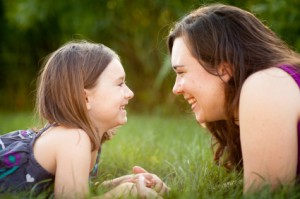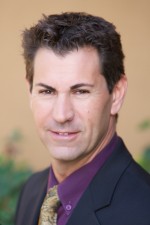Anxious Parents = Anxious Children
When parents get anxious, children get anxious. It’s really that simple. That old adage of “take care of yourself, before trying to take care of others”, applies to parenting as well. After all, most invested parents in the community of Carmel Valley San Diego will state that parenting is the most important, rewarding, yet most stressful “job” in the world, and it is! Perhaps the most common trait of any good parent is “worry”. This is a good thing, for worry equals caring and protection which are necessary to raise healthy children. But as with anything, too much or too little of something usually has shortcomings. A parent who is too anxious is going to be both stressed out and stress out their child, while a parent who is not “concerned enough”, may not be helping their child enough and the child then internalizes this experience and responds to themselves and others in the same manner.
Regarding children, especially young ones, they perceive how things are going not only from their own experiences, but from the observation of how their parents both manage their own stress, and how the parent responds to the them during times of conflict. Take 10 year old Bradley for example. He is a very good student, but has some particular difficulty in math. He is very discouraged that he does very well in most of his other subjects, but tends to struggle in various concepts that he has been learning this year. His mother is a very loving and well-intended person, but becomes upset and anxious when Bradley gets stuck on certain math facts and will in fact make comments to him such as “if you don’t get this stuff, you may never be that scientist that you want to be when you grow up”. One could reason that her comment was an attempt to motivate Bradley to perhaps “study harder”, but in many cases, a comment such as this one might be very upsetting to a child and become internalized that they are perhaps flawed and actually backfire and decrease motivation.
Positivism and being realistic are vital parental traits that truly help children succeed! Research and everyday experiences teach us that when we approach conditions with confidence and determination, the end result tends to be positive. However, children are still developing such traits and need good models and feedback to help them internalize such important personality traits. From an early age, parents need to instill a sense of “calmness” as a response to stress. This actually begins in infancy, where the optimal role of the primary caretakers are to actually “relieve the distress” of an infant’s discomfort – in other words, take away the discomfort from the outside, not assume that the completely dependent baby can somehow do this him or herself. They can’t. And when parents do not function in this manner towards their child at least for the first 3 years of life, many individuals become quite disturbed either as children or no later than adolescence.
Self-soothing is a function that both adults and children share alike. Children get it from their parents, and parents need to be able to do this themselves before they can give it to them. But the benefits are amazing. Both the child and parent alike are calmer. Calmness then leads to better judgment and outcome. Furthermore, when adolescents and their parents are both calm, they get along better. Consider 16 year old Emily who was invited over to her best-friend’s house for a Jonas Brother’s Easter Party (no, the Jonas Brothers are NOT going to be there). Emily really wants to go, but knows that her mother is going to “freak-out” about it and bombard her with questions about supervision, drugs, alcohol, and boys. Emily knows that her mom tends to be a “worrier” and in fact is not sure she even wants to ask if she can go to avoid the interface with her mother, but, she really wants to go and is NOT personally concerned about any wrongdoings at this party. Her friends are all straight A students who think that drinking and doing drugs is just dumb! In this case, Emily’s mom is the one who is anxious and this anxiety is then causing tension for Emily.
Can self-soothing be learned after the first 3 years of life? Sure, but it takes both understanding and hard work. For the adults, it takes talking to oneself in the same soothing manner as the parent would express to the child. We could call this, “being your own internal parent”. Such commentary includes the elements of soothing and then realistic appraisal of the situation that is causing the stress. Then comes the outcome which has been developed through calm introspection. If Emily’s mom would have calmed herself down, reviewed her trust in Emily and evaluated her level of judgment, she and Emily would have had a “calm” discussion about the party and made a decision about whether Emily should go or just stay home and listen to the Jonas Brothers on her I-pod.
Key Points:
1. Anxious Parents = Anxious Children
2. Adults need to model how to manage stress
3. Calm introspection is the optimal level of functioning
4. Self-soothing can be learned but is hard work
5. Parents get along better with children when both parties are clam
Dr. Keith Kanner is a Licensed and Board Certified Clinical Child, Adolescent, and Adult Psychologist and Psychoanalyst. In addition to running a full-time private practice, he is an Assistant Clinical Professor of Psychiatry in the School of Medicine at the University of California San Diego where he teaches both human development and also trains medical students how to better understand and relate to their patients. He also serves as the Director of Clinical Counseling for La Jolla Country Day School in La Jolla, California, and is a Clinical Professor at The San Diego Psychoanalytic Society and Institute. Dr. Kanner also sits on the National Board of Directors for Kids Korps USA, which is the largest organization in the country that teaches children and adolescents the importance of volunteering to help the community at large. As a father of three children, he is also a dedicated baseball, football, and soccer coach.
Important Note: The Carmel Valley Life is not held responsible for any random bursts of joy you will likely experience while exploring your community website. Due to the overwhelmingly increased sense of community and connection commonly experienced on this site, we encourage you to view any material with a friend should you need any assistance. The Carmel Valley Life is proud to be a community run and operated organization comprised of leaders who come together to educate and inspire the Carmel Valley San Diego community. We are a movement towards community, connection and contribution. Should you or someone you know like to contribute to the movement with your expertise, knowledge, skill or voice, please contact us immediately. Passion, involvement and contribution is highly encouraged and welcomed. Thank you and please continue to enjoy this publication.












You must be logged in to post a comment Login